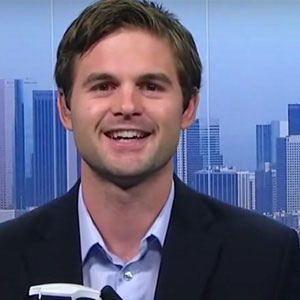THANK YOU FOR SUBSCRIBING

Brendan Reilly, Co-Founder and CEO, EON Reality
Right now, in Virtual Reality in Sports there are two main ways of providing this experience. We are the only company that provides bot h and this is something that has been warmly received by elite teams as there is no "silver bullet", but rather many tools that coach’s want.
Live Action 360 - This is rather introductory in VR and quite frankly anyone can do it. We capture and take 360 degree footage of the environment and play it back in 360 Video. It's a very compelling experience as everything is REAL, and thus is very useful when you are looking at intricate details, (i.e.- where a player steps, hand placement). However, some drawbacks here are you are stuck with what you capture, it is extremely labor intensive, and requires 22 guys doing exactly what you want them to do!
Computer generated scenarios- Set up in a traditional X and O software that coaches are comfortable with, our software breathes life into the X and O’s and provides realistic computer generated depictions of the plays. This VR solution allows you to experience and try out many different scenarios without having to capture the video. Whereas the Live Action requires many hours to produce and prepare, the computer generated avatars take mere seconds to set up and create the scenario a coach wishes to create. Great of pre-snap reads and initial decision making.
Revolution of Big Data
Within our world of VR we are just now beginning to scratch the surface of linking data and performance with the VR simulations we can create. Most surprisingly is the link between on field success/ failure and performance in our simulations. Our ability to integrate data from live action and stream it into our simulations provides a meaningful experience that goes above and beyond training. We believe fan experience will be affected by this the most.
IoT in Sports
Linking the training applications with on field game play. I think we are a bit away from this, but the data we get can directly implicate on field success by the transfer of technology. In training, the flow of real time VR data into our Virtual Simulations have implications not just only on the training side of things, but on the fan engagement/ experience side as well.
Creating Competitive Advantage
Innovate responsibly. What I mean by that is hardware, software and everything in between moves very, very fast. So in order to stay ahead of the competition, don't be afraid to fail, but make sure you are tracking everything along the way. Turn failed experiments into learning lessons and build off of that.












